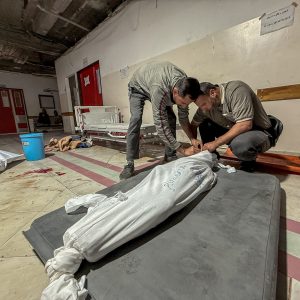Muslims face representation decline in Indian parliament
Falling from 26 to 24, Muslim lawmakers in the new Indian parliament include an Imam of mosque to London educated girl
By Iftikhar Gilani
In the recent pulsating electoral battle across India, the winds of change seemed to whisper through the corridors of power, hinting at a resurgence of secular forces.
Yet, beneath the surface of this political shift, a deeper concern casts a long shadow over the nation’s democratic fabric—the underrepresentation of its Muslim citizens in Parliament.
Despite the secular opposition’s gains, which clipped the wings of the ruling Hindu nationalist Bharatiya Janata Party (BJP), the representation of Muslims has not seen a corresponding uplift.
Falling from 26 to 24 in a parliament of 543 seats, Muslim lawmakers find themselves increasingly marginalized, accounting for a mere 4.42% of the total—a stark discrepancy given their 220 million-strong demographics. Muslims constitute about 14.2% of the country’s population, according to India’s last census in 2011.
This decline in Muslim representation has unfolded over the years against the backdrop of an intensified majoritarian political ethos, prominently under Prime Minister Narendra Modi’s leadership.
During the 2024 campaign, Modi’s rhetoric often touched upon the theme of Muslim appeasement, prompting secular parties to adopt a more cautious stance on nominating Muslim candidates.
Among the 24 who succeeded in clinching seats are — seven from the Congress party, five from the All India Trinamool Congress in West Bengal, and four from the Samajwadi Party in Uttar Pradesh—India’s most populous state.
This scenario highlights a paradoxical electoral outcome: as the secular tide rises, the voice of a significant minority ebbs lower, echoing the complex interplay of democracy and identity in the world’s largest democracy.
Out of these 24 MPs, four are from Muslim majority Kashmir Valley and Ladakh. Significantly, the northeastern state of Assam, despite hosting a Muslim population that constitutes 33% of its demographic, will have just one Muslim MP in the Lok Sabha. This highlights a stark representation gap.
The Indian Union Muslim League (IUML) managed to hold its ground in the southern state of Kerala, securing two seats, while also clinching a seat in the neighbouring Tamil Nadu. These wins underscore the localized strongholds of the party in southern India.
Adding a fresh perspective to the Muslim representation are two women — Iqra Choudhary from Kairana in Uttar Pradesh and Sajda Ahmed from Uluberia in West Bengal. At 28, Choudhary, a first-time MP with a postgraduate degree in international law from the University of London, brings youthful energy and an international perspective to the table.
On the other hand, the seasoned 61-year-old Ahmed embarks on her third term, representing a blend of experience and resilience in the political arena.
Also, from UP’s historic town Mufti Mohamamd Mohibullah won election on the SP ticket. He is Imam of a mosque situated near the Indian parliament building. For years, he has been leading prayers there and has been living in a two-room shed inside the mosque courtyard.
Historically, Muslim representation has seen fluctuations, with a peak of 49 MPs in 1980, which contrasted sharply with a low of 22 in the 2014 elections. The recent election’s count stands at a modest improvement yet remains a far cry from earlier figures.
The Samajwadi Party (SP) emerged as a crucial player in bolstering Muslim representation. Remarkably, all four Muslim candidates fielded by the SP secured victories, an outcome that resonates with the party’s targeted appeal and strategic placements. However, the Bahujan Samaj Party (BSP), despite presenting 20 Muslim candidates, did not see any success, which points to the shifting dynamics and voting patterns within the community.
A significant observation from the elections was the strategic voting behaviour exhibited by Muslim voters. Exit polls revealed an overwhelming support of 87% for the INDIA coalition, which includes the SP and Congress, a stark increase from the 49% in 2019. In a dramatic shift, only 2% supported the BSP, plummeting from 36% in the previous elections.
Muslim voters faced formidable challenges during the elections. For instance, in Uttar Pradesh’s Sambhal region, police baton-charged voters in Muslim-dominated villages, resulting in injuries and creating a chaotic scene.
Despite such challenges, voter turnout in Sambhal was among the highest at 62.82%. However, many locals believed that the heavy-handed police tactics deterred potential voters, leading to a sense of disappointment among the residents.
Analysts say these election results have debunked the notion that Muslim voters no longer have the power to shape the political landscape.
The significant turnout and strategic voting by Muslims sent a clear message to the BJP about the community’s political relevance. In Uttar Pradesh, where Muslims constitute around 20% of the population, their support was crucial in defeating the BJP in key constituencies like Rampur and Azamgarh.
Similarly, in West Bengal, a state known for its secular and pluralistic values, the aggressive BJP campaign aimed at polarizing communities along religious lines was met with strong resistance.
Approximately 70% of the state’s Muslim electorate voted for the opposition Trinamool Congress (TMC), which is ruling the state significantly contributing to its victory. TMC’s stance against the controversial Citizenship Amendment Act (CAA) and outreach to the Muslim community solidified their support.
This election cycle saw Muslims prioritizing immediate concerns of neutralizing the hate filled environment. Salman Imtiaz, a Congress leader from Aligarh, notes that the existential worry faced by Muslims under Modi’s leadership united the community in a strategic move against the BJP.
This sense of survival and the need to address practical governance and policy matters drove Muslims to support opposition groups.
Names of Muslim MPs
Congress
Rakibul Hussain (West Bengal)
Mohammad Jawed (Bihar)
Tariq Anwar (Bihar)
Shafi Parambil (Kerala)
Imran Masood (Uttar Pradesh)
Isha Khan Choudhury (West Bengal)
Muhammed Hamdullah Sayeed (Lakshsdweep)
Samajwadi Party (All candidates from Uttar Pradesh)
Iqra Choudhary
Mufti Mohamamd Mohibullah
Zia ur Rehman
Afzal Ansari
Trinamool Congress (TMC) from West Bengal
Khalilur Rahaman
Pathan Yusuf
Abu Taher Khan
SK Nurul Islam
Sajda Ahmed
Indian Union Muslim League
E.T. Mohammed Basheer (Kerala)
M.P Abdussamad Samadani (Kerala)
Navaskani K (Tamil Nadu)
All India Majlis Ittehadul Muslimeen (AIMIM)
Asaduddin Owaisi
Independents
Abdul Rashid Sheikh (Kashmir)
Mohmad Haneefa (Ladakh)
National Conference
Aga Syed Ruhullah Mehdi (Kashmir)
Mian Altaf Ahmad (Kashmir)












